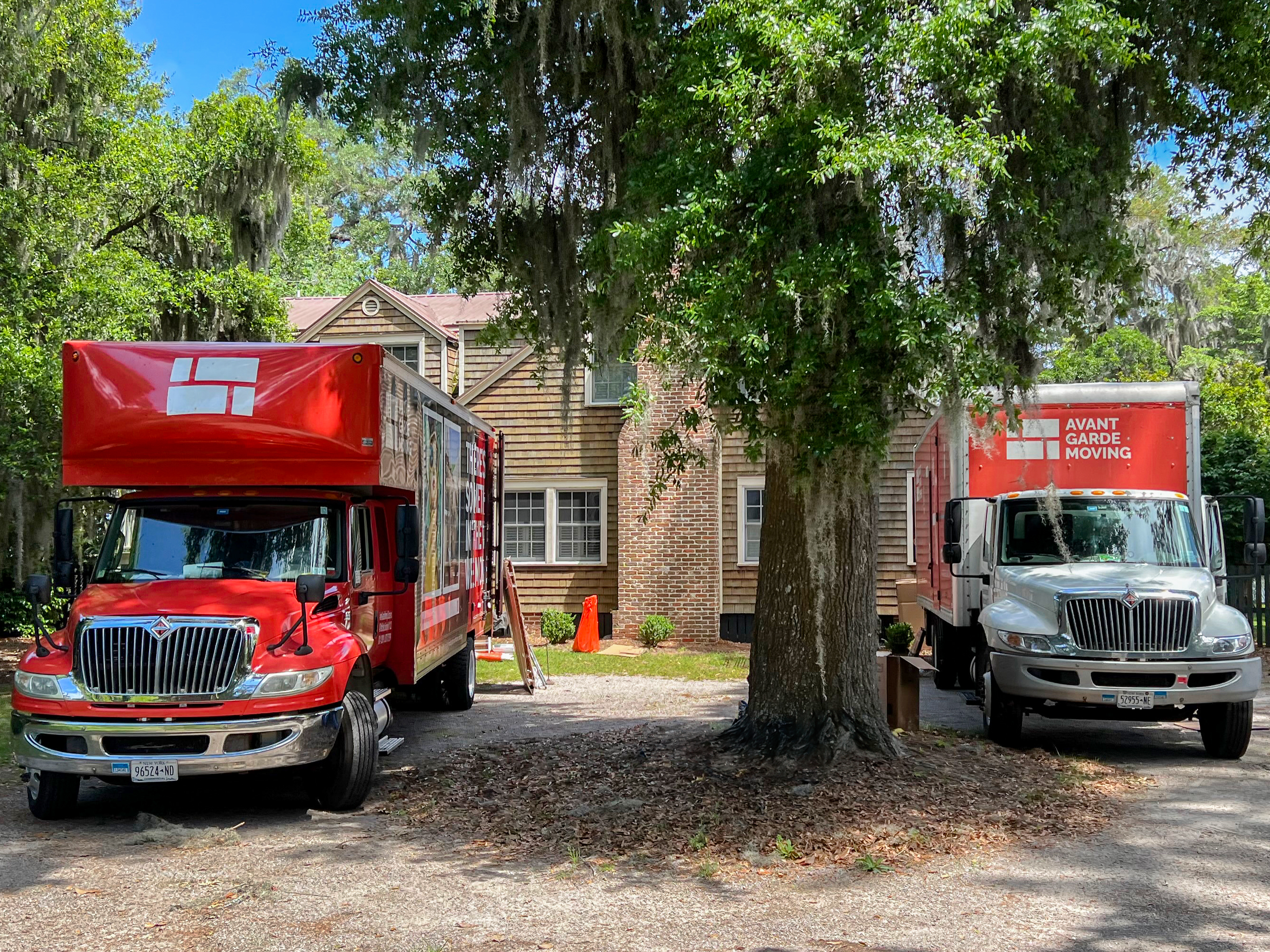New York City's rental market operates under strict lease agreements. When tenants stay past their lease end date without signing a new agreement, they enter holdover status. This seemingly minor delay triggers severe financial penalties that catch most people off guard.
The numbers tell a stark story. Holdover tenants typically pay double or triple their monthly rent. Add legal fees, court costs, and potential damage to rental history, and the total bill climbs fast. For a tenant paying $3,000 monthly rent, holdover status could mean $9,000 per month plus thousands in legal costs.
What Makes You a Holdover Tenant
Holdover status begins the day after your lease expires. It doesn't matter if you're still packing boxes or waiting for movers. According to Brick Underground, once your lease ends and you haven't moved out or signed a renewal, you're technically trespassing.
Most tenants assume they have a grace period. They don't.
Landlords can start holdover proceedings immediately after lease expiration. Some wait a few days. Others file court papers the next morning. The speed depends on building policy and how quickly they need the unit for new tenants.
The Legal Definition
New York's Real Property Law defines holdover tenants as individuals who remain in possession of rental property after their right to occupy has ended. Courts don't require proof of malicious intent. Simple presence after lease termination is enough.
The Real Cost Breakdown
Triple Rent Penalties
Many NYC leases include holdover clauses specifying 200% to 300% of monthly rent for each month you stay beyond your lease. This isn't optional. It's written into your contract.
For a $2,500 apartment:
- Month 1 holdover: $7,500
- Month 2 holdover: $7,500
- Total for two months: $15,000
Compare this to your regular annual rent of $30,000. Two months of holdover status costs half your yearly rent.
Legal Fees Add Up Fast
Landlords who file holdover proceedings hire attorneys. Those legal fees become your responsibility when you lose in housing court (which happens in most cases).
Typical legal costs include:
- Attorney fees: $3,000 to $8,000
- Court filing fees: $500 to $1,000
- Marshal fees for eviction: $500 to $1,500
- Storage of belongings: $200 to $500 per day
The average holdover case costs tenants $5,000 to $12,000 in legal fees alone.
Damage to Your Rental Record
Housing court records are public. Future landlords search these databases during application reviews. A holdover case on your record raises red flags that make finding your next apartment extremely difficult.
Even if you eventually settle the case, the initial filing stays visible. Many landlords automatically reject applicants with any housing court history.
Why Tenants End Up as Holdovers

Most people don't plan to become holdover tenants. Several common scenarios create these expensive situations.
Moving Delays
Moving companies get booked solid during peak season (May through September). If you book movers too late, you might not get your preferred date. That one-week delay could cost thousands.
New Apartment Isn't Ready
New landlords sometimes delay move-in dates for repairs or previous tenant issues. You're stuck between two leases with nowhere legal to live.
Last-Minute Job Changes
A job offer falls through or gets delayed. Suddenly the apartment you planned to move into doesn't make sense anymore. But your current lease ends in three days.
Underestimating Packing Time
Packing a two-bedroom apartment takes 20 to 30 hours for most people. Without professional packing services, many tenants run out of time as their lease deadline approaches.
The Eviction Process Timeline
Understanding how quickly holdover proceedings move helps explain why the costs accumulate so fast.
Day 1 After Lease Expires: Landlord can file a holdover petition in housing court.
Week 1-2: Court schedules a hearing date, typically within 10 to 21 days.
Week 3-4: First court appearance. Judge reviews the case. Most tenants lose at this stage because the facts are clear (lease expired, tenant still present).
Week 4-6: If tenant doesn't vacate voluntarily, landlord requests a warrant of eviction.
Week 6-8: Marshal executes the warrant, physically removing tenant and belongings.
The entire process takes four to eight weeks. During this time, triple rent charges accrue continuously.
How to Avoid Holdover Status
Plan Your Move Timeline Early
Start planning 60 to 90 days before your lease ends. This gives you time to secure reliable movers and handle unexpected delays.
Key planning steps:
- Mark your lease end date on multiple calendars
- Request moving quotes 45 days in advance
- Book your moving date 30 days before lease expiration
- Start packing non-essentials 3 weeks out
- Schedule building elevator reservations 2 weeks ahead
Request a Lease Extension in Writing
If you need extra time, ask your landlord for a short-term extension before your lease ends. Put everything in writing. Email works, but certified mail is better.
Most landlords prefer a one-week extension over the hassle of holdover proceedings. Offer to pay prorated rent plus a reasonable premium (like 25% extra) for the extension period.
Consider Short-Term Storage
When your new place isn't ready but your current lease ends, storage solutions cost far less than holdover penalties.
A climate-controlled storage unit for a one-bedroom apartment costs $200 to $400 monthly. Even adding a hotel room for a week ($1,000 to $1,500) totals less than one month of holdover rent.
Use Professional Moving Services
Professional movers work efficiently and stick to schedules. White glove moving services handle everything from packing to furniture placement, dramatically reducing the risk of timeline overruns.
The cost difference matters here. Hiring professional movers costs $1,500 to $4,000 for a typical NYC apartment move. Holdover status for even one week costs significantly more.
What Happens If You're Already in Holdover
If you've already passed your lease end date, damage control becomes critical.
Act Immediately
Every day counts. Contact your landlord right away. Explain your situation and propose a specific move-out date within the next 72 hours.
Get Emergency Moving Help
Several NYC moving companies offer same-day moving services for emergency situations. Yes, they cost more than scheduled moves. But they cost far less than ongoing holdover penalties.
Document Everything
Take photos of your communication with the landlord. Save all emails and texts. If the situation goes to court, evidence of your good-faith efforts to resolve the situation quickly helps your case.
Negotiate Settlement Terms
If your landlord has already filed court papers, you might negotiate a settlement. Offer to vacate within 48 hours in exchange for reduced penalties. Many landlords prefer getting their unit back quickly over pursuing maximum damages.
The Building Rules Factor

NYC buildings have strict moving rules that can delay your move if you're not prepared. These rules contribute to holdover situations when tenants don't plan ahead.
Most buildings require:
- Certificate of Insurance (COI) from your moving company, submitted 5-10 days in advance
- Elevator reservations, often booked weeks ahead
- Specific moving hours (usually weekdays only)
- Building deposits ranging from $500 to $2,000
Understanding NYC building rules and COI requirements prevents last-minute surprises that could push your move past your lease end date.
Special Considerations for Different Borough Moves
Holdover penalties apply citywide, but local moving logistics vary by borough.
Brooklyn to Manhattan Transitions
Cross-borough moves take longer than many people expect. Moving from Brooklyn to Manhattan requires coordinating two sets of building rules, double the parking challenges, and typically adds 2-3 hours to your moving day.
Build extra time into your schedule. What seems like a simple move across the bridge becomes complex fast.
Manhattan Building Complexities
Manhattan buildings often have the strictest moving rules. Doormen buildings, co-ops, and luxury condos maintain tight control over moving schedules.
Some require moves to happen only on specific days. Others charge substantial elevator reservation fees. Missing these requirements can delay your move by days or even weeks.
The Suburban Alternative
Some tenants facing lease-end pressure consider moving to suburbs from NYC to escape tight timelines and expensive rentals. Suburban leases often offer more flexibility and lower penalties.
But suburban moves require more planning, not less. Distance, logistics, and the volume of belongings increase complexity. Starting the process early becomes even more important.
Real Financial Impact: A Case Study
Consider a typical scenario. Sarah rents a one-bedroom in Queens for $2,400 monthly. Her lease ends May 31st. Her new apartment in Brooklyn isn't ready until June 15th.
Sarah decides to stay in her current apartment those extra two weeks. Her lease includes standard holdover language: double rent for overstaying.
The costs:
- Two weeks holdover at double rent: $2,400
- Landlord files court case: $500 filing fee
- Attorney fees (tenant loses): $4,500
- Marshal execution fee: $800
- Total cost: $8,200
The alternative:
- Professional movers on May 31st: $1,800
- Two weeks in extended-stay hotel: $1,400
- Two weeks of storage: $150
- Total cost: $3,350
The difference? $4,850 saved by planning ahead.
Prevention Beats Cure
Holdover status creates financial damage that's hard to recover from. Triple rent charges, legal fees, and damaged rental history combine into a perfect storm of expenses.
The solution isn't complicated. Plan your move timeline carefully. Book professional movers early. Communicate clearly with both your current and future landlords. And never assume you have informal grace periods that don't exist in your lease.
Those few extra days in your old apartment carry a price tag that makes hotels and storage look like bargains. Understanding the real costs of delayed moving helps you make decisions that protect both your finances and your future rental prospects in New York City's unforgiving housing market.


